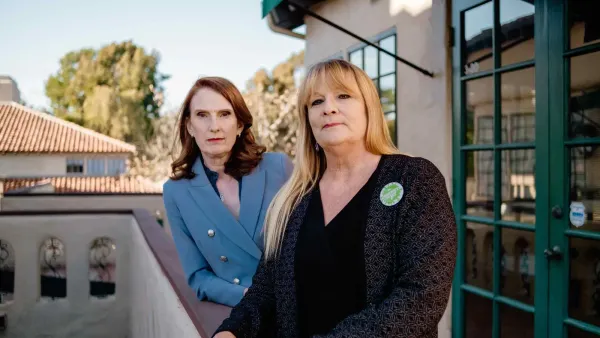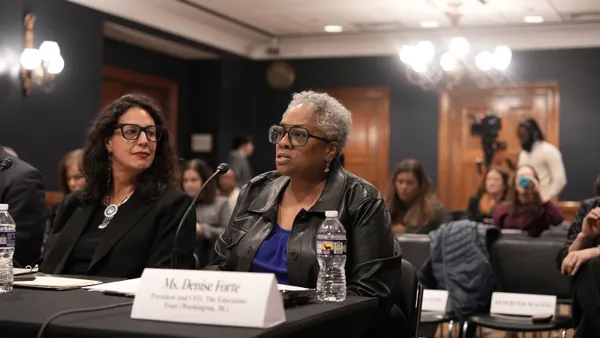UPDATE: July 1, 2025: The Senate narrowly passed its version of the Trump administration's "One, Big, Beautiful Bill" on Tuesday that includes a $4 billion private school choice provision. The bill now goes back to the House for consideration.
Dive Brief:
- A national private school choice tax incentive is inching closer to reality as Republican-led proposals dedicate funding for the controversial reform effort in the "Big, Beautiful Bill" now moving through Congress. GOP leaders hope to finalize the plan in the next few weeks.
- The Senate proposal released this month commits $4 billion per year in tax credits for contributions to a scholarship-granting organization that could be used toward tuition or other expenses at public, private and religious K-12 schools. The House plan, which was narrowly approved in May, would dedicate $5 billion a year for a national private school choice program.
- Meanwhile, states including Texas, Tennessee and New Hampshire have created or expanded their own universal private school choice programs, drawing concerns from public school advocates who say taxpayer funds should be prioritized for public schools. Proponents, however, say more school choice will empower parents and bring better outcomes for students.
Dive Insight:
State lawmakers have introduced a total of 624 school choice proposals during 2025 legislative sessions, according to the National Conference of State Legislatures. Proposals were presented in all but two states — Colorado and Delaware. As of Tuesday, 310 of the bills nationwide were pending, 239 had failed and 72 were adopted. The bills included private and public school choice measures.
At the national level, the plan — if enacted — would become the first federally sponsored private school voucher program available nationwide.
The House and Senate proposals are part of a large budget reconciliation package to reduce taxes and offset costs of President Donald Trump's priorities. Lawmakers are using this process to get the bill through Congress, as it lets the Senate approve spending measures with a simple majority of 51 votes rather than the 60 needed to overcome a filibuster.
Darius Jones, senior advisor to the National Black Empowerment Action Fund, said there is strong support among Black families for private school choice. The attraction is an opportunity for better educational opportunities, and many families are demanding an urgent change to the traditional school enrollment model, said Jones, who is also founder and executive director of the National Black Empowerment Council. The fund is an advocacy organization seeking economic, social and educational advancement in Black communities.
"You have more and more African American kids who are going directly from a school-to-prison pipeline," because, Jones said, schools are "woefully underperforming."
He added, "There's real frustration."
Jones said he advocates for a "flood the zone" approach to school enrollment that would connect families and students to many different educational initiatives and opportunities.
Public school advocates, on the other hand, criticize private school choice programs as lacking accountability for student performance and for funneling taxpayer funds to private schools that can turn away students who require more supports, such as those with disabilities and English learners.
"Public dollars carry the responsibility for providing public access, governance and accountability and must remain invested in public schools for the benefit of all students and families and the future of our nation," said Yvonne Johnson, National PTA president, in a June 17 statement.
Legal challenges, meanwhile, are continuing in this arena. Over the past year, courts in at least three states – Utah, Ohio and South Carolina — found private school choice programs violated state constitution provisions.






 Dive Awards
Dive Awards





